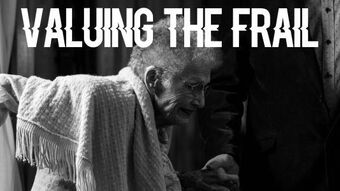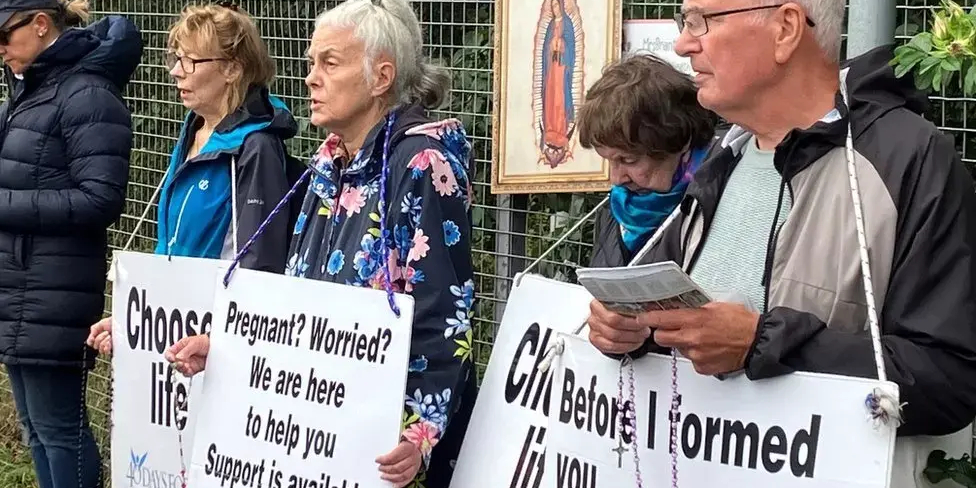A Good Society: Values the Frail

We live in a society that vaunts a particular kind of healthy, well dressed, youthful looking person. A look that cannot stomach perceived flaws (even though the definition of what ‘being flawed’ is highly subjective). In printed and social media we elevate culture’s present position on what constitutes the pristine male and female body shape. Then this ‘look’ is peddled hard to establish these new norms until there is universal acquiescence.
This image of the pristine female or male has its assumed cultural opposite – those who are older, infirm and who manifest many ‘physical flaws’ by comparison. Building on this is the subtle concern of those in the broadcast media who keep pointing out Britain’s ageing population, the ever-growing ticking timebomb of society. There is a perceived anxiety that this massive demographic is going to get larger in number, not smaller. But there is no way that this swathe of society can be swept under the carpet and forgotten because their number is too great. And yet it seems sometimes that that is what society would rather do.
I heard a story the other day of an elderly lady going to the hospital to get a cataract operation. On arriving she discovered it was cancelled. What she understood from the discussion was that those who are of considerable age are not high enough up the age pecking order to be any sort of priority and so her slot had been bumped. This poor lady has to go on with very little eye-sight function at all with no resolution to speak of.
But what are we saying when society makes these medical calls? That our older, less pristine, members of society are not worthy of keeping their place in queue for medical aid? Are we saying that they are less of a priority than anyone else by virtue of the years they have left in life or by their capacity for bodily function? Are we basically saying that they are less entitled to keep their number in the queue than younger and fitter people?
Even more sinister than this, there is a fresh push in Scotland for a change in our laws to allow for doctors to assist someone to die in certain circumstances. Don’t misunderstand me, there are some terrible degenerative diseases out there and many of our loved ones suffer or have suffered them. These conditions are downright miserable and there is no questioning that. As a society, for the third time in nine, perhaps ten, years our MSPs may have to have a vote on whether we can legally end someone’s life in a premature manner as a mercy killing. On the previous two occasions Scotland’s elected ones have batted such cases out of the park.
For over two thousand years physicians have worked according to the Hippocratic oath ‘do not harm’, a tradition which has served us very well. But once again Scottish society will consider the very serious claim – are our frail, infirm, and ageing people of value or not? The rejoinder will come of course, stating that because our frail loved ones are in such pain and suffering that we must mercifully ‘put them down’.
But only a good society knows that such a move is a dark one to make on behalf of its fellow citizens. Only a good society understands that its valour is tested by how well and committed we are to caring for our aged ones, the ones who have been there before us and have shaped us. Indeed, adding a further tradition to the mix, a society can only be good when we argue persuasively against “the common belief that we are the sum of our memories, a belief that suggests that when we remember nothing, we are somehow deprived of our personhood. [University of Aberdeen’s John] Swinton argues instead that our value is underwritten by God’s memory of us—not our memory of God.”[1]

Stuart Weir is Director of CARE for Scotland. This is the ninth blog in a series called A Good Society. You can read the others here.




Share story
A Good Society: Values the Frail